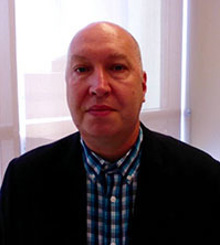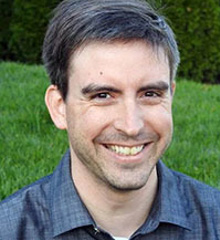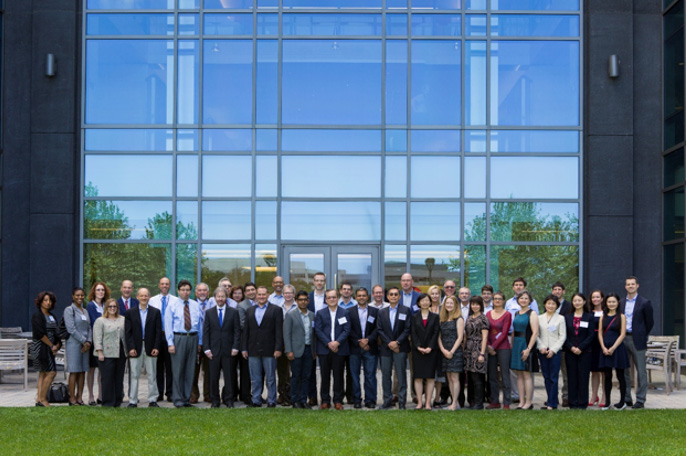Meetings and Events
Spring 2013
Vol. 8, Issue 1
Winter 2013
Vol. 7, Issue 2
Spring 2012
Vol. 7, Issue 1
Spring 2011
Vol. 6, Issue 1
Fall 2011
Vol. 6, Issue 2
Spring 2010
Vol. 5, Issue 1
Fall 2010
Vol. 5, Issue 2
Spring 2009
Vol. 4, Issue 1
Fall 2009
Vol. 4, Issue 2
Spring 2008
Vol. 3, Issue 1
Fall 2008
Vol. 3, Issue 2
Fall 2007
Vol. 2, Issue 2
Winter 2007
Vol. 2, Issue 1
Summer 2006
Vol. 1, Issue 2
Chronomedicine Interest Group
Mission and goals: provide a forum to stimulate scientific communication, share and disseminate information, and facilitate collaborations among NCI, NIH staff and extramural academic scientists interested in the circadian clock, circadian rhythm and chronomedicine research.
Contact person: Dan Xi, PhD (xida@mail.nih.gov) Chair, Chronomedicine Interest Group
Chronomedicine Speaker Series
News
Monthly Speaker/Webinar Series
Monday, December 4, 2017
1:00 - 2:00 pm EST
Time for Circadian Medicine: Design and Analysis of Genome-scale Circadian Experiments

John Hogenesch, Ph.D.
Ohio Eminent Scholar
Professor of Pediatrics
Cincinnati Children's Hospital Medical Center
Dr. Hogenesch is an Ohio Eminent Scholar and Professor of Pediatrics at Cincinnati Children's Hospital Medical Center in the Divisions of Perinatal Biology and Immunobiology. His lab studies genome biology with a focus on the molecular mechanisms of circadian rhythms in mammals. Dr. Hogenesch discovered several new bHLH-PAS transcription factors, including the hypoxia inducible factors, as well as the core clock components, Npas2, Bmal2, Rora, and Bmal1, the only required component of the mammalian circadian clock. Dr. Hogenesch also pioneered the discovery of clock regulated gene expression in plants, flies, mice, and man. As a genome biologist, Dr. Hogenesch's lab applies and integrates various disciplines including bioinformatics, genomics, molecular and cellular biology, and genetics.
Before moving to Cincinnati, Dr. Hogenesch was Professor and Vice Chair of Pharmacology at the University of Pennsylvania Perelman School of Medicine. He did his Ph.D. in Neuroscience at Northwestern University. Currently, Dr. Hogenesch is a Penn Fellow, sits or has sat on the Scientific Advisory Boards of Qiagen, Mimetics, Bio-Rad, Reset Therapeutics, the Ryan Licht Sang Foundation Medical Committee, and the Gene Ontology (GO) consortium, and is an advisor to several National Institutes of Health, NIDDK, NCI, NHLBI, and the Environmental Protection Agency (EPA). Currently, the Hogenesch lab is focused on translating the molecular outputs of the clock into actionable clinical insights in a wide range of diseases.

Michael Hughes, Ph.D.
Assistant Professor of Medicine
Washington University in St. Louis
Dr. Michael Hughes received his MS/BS in Biology from Stanford University. He was awarded a PhD in Neuroscience from Harvard Medical School in 2007, and trained as a postdoctoral fellow with John Hogenesch at the University of Pennsylvania, and Michael Nitabach at Yale University. Work in the Hughes lab focused on the mechanisms underlying tissue-specificity of transcriptional programs, with a special emphasis on circadian rhythms. His first faculty position was in the Department of Biology at the University of Missouri-St. Louis. He is currently an Assistant Professor of Medicine at Washington University in St. Louis.
Meeting
DCTD Convenes Workshop on Circadian Rhythm and Chronomedicine for Cancer and Other Diseases in the Era of Precision Medicine
https://dctd.cancer.gov/NewsEvents/20171129_workshop_circadian_rhythm.htm
On September 27-28, 2017, the National Cancer Institute held a Strategic Workshop: Circadian Rhythm, Chronomedicine for Cancer and Other Diseases in the Area of Precision Medicine (agenda).
The meeting Chair, Dan Xi, PhD, Program Director, and Director of the Research Development and Support Program, Office of Cancer Complementary and Alternative Medicine (OCCAM), DCTD, planned and led the workshop with input from the workshop planning committee. This comprehensive, trans-NIH workshop was also co-funded by NCI’s Division of Cancer Prevention, the National Institute of General Medical Sciences, the National Heart, Lung, and Blood Institute, the National Institute of Diabetes and Digestive and Kidney Diseases, and the National Institute of Allergy and Infectious Diseases.
Approximately 50 attendees from NIH, academia, and cancer centers participated, with the following diverse expertise: circadian rhythms, circadian clock, sleep research, chronotherapy, cancer therapeutics research, radiation therapy, population and behavior science, cancer biology, molecular biology, computation and mathematical modeling, nutrition, metabolism, obesity and diabetes, the microbiome, the immune system and inflammation, neuroscience, aging and dementia, stem cells, pediatrics, biomarkers, and clinical trials.
Meeting Goals
- Assess the status of circadian rhythm and sleep research in cancer research, other diseases, and chronotherapy, from basic biology to population, translational, and clinical research
- Discuss the scientific gaps, needs, and opportunities
- Provide input to NCI/NIH regarding future initiatives and priority research areas
- Ultimately improve our fundamental understanding of human circadian clock biology and improve translational application in public health, disease diagnosis, prevention, treatment, and health disparities across the lifespan.
Keynote Presentation and Speaker Panels
- Keynote Lecture: Dr. Chi Dang, Ludwig Institute for Cancer Research and the Wistar Institute; “Cancer Clock Connections: Progress and Provocative Questions.”
- Molecular Biology of Circadian Rhythm and Cancer Development
- Circadian Clock, Sleep on Health and Diseases, Biomarkers, Big Data and Systems Modeling
- Circadian Clock, Nutrition and Metabolism
- Circadian Rhythm and Microbiota
- Circadian Rhythm and Sleep Effects on Inflammation and Immune System
- Chronomedicine and Clinical Trials
Discussion Points and Future Work
- Developing circadian rhythm/clock atlas
- Potential importance of incorporating “Biological TIME” as a variable in medical research
- Envision the future 5-10 years of the field and its translational application for health and medicine
- White paper coordination and development to serve as a guide to future research
- Trans-NIH working group to further stimulate research in this field
Contact Dan Xi, PhD (xida@mail.nih.gov) with questions about this workshop.






